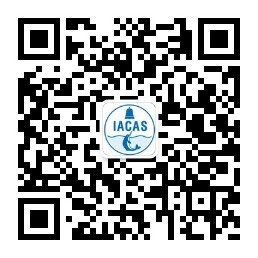Explosive charges have been widely used as sound sources in the underwater acoustic experiments and geophysical due to their many attractive features, e.g., high source level, wide bandwidth, etc. Unfortunately, the received shock wave is often followed by a series of bubble pulses, which corrupt the shock wave and thus have an undesirable influence on the observation and its applications.
GE Fengxiang, ZHANG Yan, LI Zhenglin and ZHANG Renhe of Institute of Acoustics, Chinese Academy of Sciences carried out a series of studies on this phenomena and presented a method based on the adaptive filtering to fit the bubble pulses in the observation, in which the filter coefficients are updated by an adaptive least squares approach.
The bubble pulses are then subtracted from the observed signal. The autocorrelation functions, time-frequency representation, and extracted mode 1 and mode 2 of the filtered observation show that the bubble pulses can be effectively canceled.
This research result was published on the recently issued IEEE Journal of Oceanic Engineering(2011,36(3):447-453)


